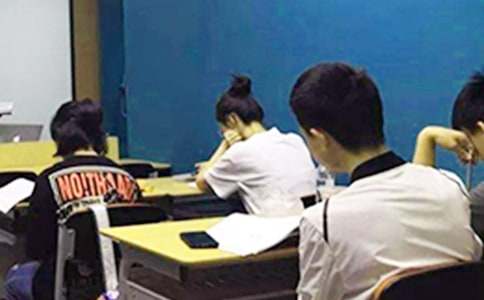- 相關(guān)推薦
最新公共英語五級考試閱讀理解經(jīng)典材料復習
No garden without its weeds.下面,小編為大家搜索整理了最新公共英語五級考試閱讀理解經(jīng)典材料復習,希望能給大家?guī)韼椭?更多精彩內(nèi)容請及時關(guān)注我們應屆畢業(yè)生考試網(wǎng)!

The striving of countries in Central Europe to enter the European Union may offer an unprecedented chance to the continent’s Gypsies (or Roman) to be recognized as a nation, albeit one without a defined territory. And if they were to achieve that they might even seek some kind of formal place-at least a total population outnumbers that of many of the Union’s present and future countries. Some experts put the figure at 4m-plus; some proponents of Gypsy rights go as high as 15m.
Unlike Jews, Gypsies have had no known ancestral land to hark back to. Though their language is related to Hindi, their territorial origins are misty. Romanian peasants held them to be born on the moon. Other Europeans (wrongly) thought them migrant Egyptians, hence the derivative Gypsy. Most probably they were itinerant metal workers and entertainers who drifted west from India in the 7th century.
However, since communism in Central Europe collapsed a decade ago, the notion of Romanestan as a landless nation founded on Gypsy culture has gained ground. The International Romany Union, which says it stands for 10m Gypsies in more than 30 countries, is fostering the idea of “self-rallying”. It is trying to promote a standard and written form of the language; it waves a Gypsy flag (green with a wheel) when it lobbies in such places as the United Bations; and in July it held a congress in Prague, The Czech capital. Where President Vaclav Havel said that Gypsies in his own country and elsewhere should have a better deal.
At the congress a Slovak-born lawyer, Emil Scuka, was elected president of the International Tomany Union. Later this month a group of elected Gypsy politicians, including members of parliament, mayors and local councilors from all over Europe (OSCE), to discuss how to persuade more Gypsies to get involved in politics.
The International Romany Union is probably the most representative of the outfits that speak for Gypsies, but that is not saying a lot. Of the several hundred delegates who gathered at its congress, few were democratically elected; oddly, none came from Hungary, whose Gypsies are perhaps the world’s best organized, with some 450 Gypsy bodies advising local councils there. The union did, however, announce its ambition to set up a parliament, but how it would actually be elected was left undecided.
So far, the European Commission is wary of encouraging Gypsies to present themselves as a nation. The might, it is feared, open a Pandora’s box already containing Basques, Corsicans and other awkward peoples. Besides, acknowledging Gypsies as a nation might backfire, just when several countries, particularly Hungary, Slovakia and the Czech Republic, are beginning to treat them better, in order to qualify for EU membership. “The EU’s whole premise is to overcome differences, not to highlight them,” says a nervous Eurocrat.
But the idea that the Gypsies should win some kind of special recognition as Europe’s largest continent wide minority, and one with a terrible history of persecution, is catching on . Gypsies have suffered many pogroms over the centuries. In Romania, the country that still has the largest number of them (more than 1m), in the 19th century they were actually enslaved. Hitler tried to wipe them out, along with the Jews.
“Gypsies deserve some space within European structures,” says Jan Marinus Wiersma, a Dutchman in the European Parliament who suggests that one of the current commissioners should be responsible for Gypsy affairs. Some prominent Gypsies say they should be more directly represented, perhaps with a quota in the European Parliament. That, they argue, might give them a boost. There are moves afoot to help them to get money for, among other things, a Gypsy university.
One big snag is that Europe’s Gypsies are, in fact, extremely heterogeneous. They belong to many different, and often antagonistic, clans and tribes, with no common language or religion, Their self-proclaimed leaders have often proved quarrelsome and corrupt. Still, says, Dimitrina Petrova, head of the European Roma Rights Center in Budapest, Gypsies’ shared experience of suffering entitles them to talk of one nation; their potential unity, she says, stems from “being regarded as sub-human by most majorities in Europe.”
And they have begun to be a bit more pragmatic. In Slovakia and Bulgaria, for instance, Gypsy political parties are trying to form electoral blocks that could win seats in parliament. In Macedonia, a Gypsy party already has some-and even runs a municipality. Nicholas Gheorge, an expert on Gypsy affairs at the OSCE, reckons that, spread over Central Europe, there are now about 20 Gypsy MPS and mayors, 400-odd local councilors, and a growing number of businessmen and intellectuals.
That is far from saying that they have the people or the cash to forge a nation. But, with the Gypsy question on the EU’s agenda in Central Europe, they are making ground.
【最新公共英語五級考試閱讀理解經(jīng)典材料復習】相關(guān)文章:
最新公共英語二級考試閱讀理解考試題10-22
最新成人英語考試閱讀理解復習題07-21
最新公共英語二級考試閱讀理解備考題07-20
最新公共英語等級考試閱讀理解預測練習題08-27
公共英語考試閱讀理解復習題二級備考試題10-02
公共英語等級考試閱讀理解模擬試題10-05
職稱英語考試閱讀理解復習的技巧07-04